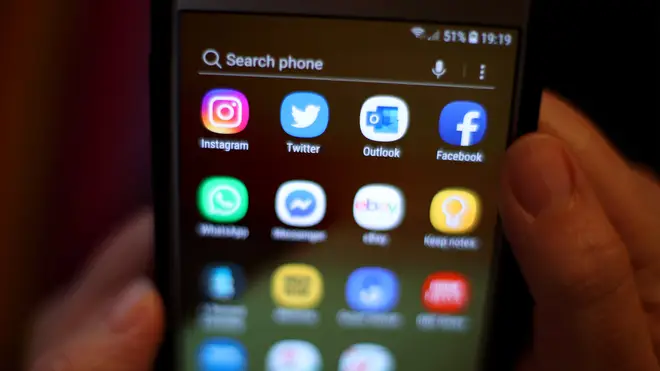
Vanessa Feltz 3pm - 6pm
7 October 2020, 18:44

The case relates to Google’s creation of the Android operating system.
US Supreme Court justices discussed restaurant menus, computer keyboards, songs and even the periodic table on Wednesday in trying to resolve a copyright dispute between tech giants Google and Oracle.
The justices were hearing arguments on Wednesday in a dispute that is worth billions and important to the future of software.
It was not clear how the justices would rule, but some of the justices seemed at least concerned about what a ruling for Oracle could mean.
The case before the justices has to do with Google’s creation of the Android operating system now used on the vast majority of smartphones worldwide.
Google says that to create Android, which was released in 2007, it wrote millions of lines of new computer code. But it also used 11,330 lines of code and an organisation that is part of Oracle’s Java platform.

Google has defended its actions, saying what it did is long-settled, common practice in the industry, a practice that has been good for technical progress.
But Oracle says Google “committed an egregious act of plagiarism” and sued, seeking more than eight billion dollars (£6.2 billion).
Chief Justice John Roberts expressed some scepticism, telling Oracle lawyer Joshua Rosenkranz to imagine opening a new restaurant and creating a menu.
“Of course you’re going to have, you know, appetisers first, then entrees and then desserts. Now you should not have to worry about whether that organisation is copyrighted,” Mr Roberts said.
The case has been going on for a decade.
Google won the first round when a trial court rejected Oracle’s copyright claim, but that ruling was overturned on appeal.
A jury then sided with Google, calling its copying “fair use,” but an appeals court disagreed.
Because of the death of Justice Ruth Bader Ginsburg, only eight justices are hearing the case, and they are doing so by phone because of the coronavirus pandemic.
The questions for the court are whether the 1976 Copyright Act protects what Google copied, and, even if it does, whether what Google did is still permitted.